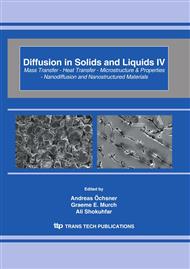p.303
p.309
p.316
p.323
p.329
p.335
p.340
p.346
p.352
A Numerical Study of Decoupled Bubble Dynamics in Nucleate Boiling
Abstract:
Nucleate boiling is an efficient mechanism of heat transfer. The rate of bubble growth and the subsequent bubble motion has a tremendous influence on heat transfer. The study of bubble dynamics is a coupled problem. The rate of evaporation controls the interface speed. One approach to study bubble dynamics is to decouple the problem from energy conservation equation and use an input value of rate of evaporation. The objective is to observe how irregular evaporation rate controls bubble dynamics and the shape of bubble and to study the local over-pressure. The level set method is used to track the liquid-vapor interface. The model consists of the Navier-Stokes equations which govern the momentum and mass balances and the level set equation which governs the interface motion due to phase change. The dynamics of a single bubble under different rates of evaporation and varying levels of gravity have been studied. The results of the numerical simulation show that this model adequately describes bubble dynamics in nucleate boiling, including conditions of microgravity.
Info:
Periodical:
Pages:
329-334
Citation:
Online since:
March 2009
Authors:
Price:
Сopyright:
© 2009 Trans Tech Publications Ltd. All Rights Reserved
Share:
Citation:


